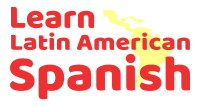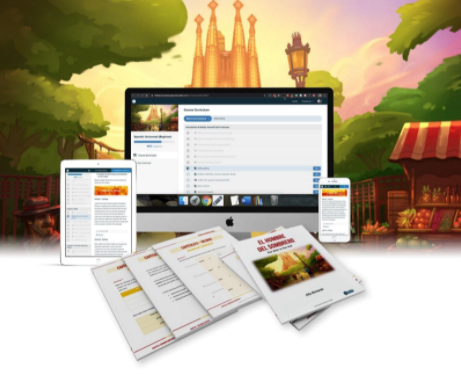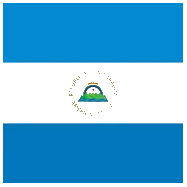|
Learn Nicaraguan Spanish: A Spanish Course for Nicaragua (Audiobook)
This audiobook details the language spoken in Nicaragua, including explanations of history, food, culture, and the influence of Nahyatl words and phrases on the lexicon of Nicaragua. Of course, Nicaragua is basically a country of Spanish speakers, but this book dives into how Nicaragua is unique and how its usage of Spanish differs from that of other countries, as well as culinary traditions and variations in grammar rules and colloquial speech. |
An Overview of Nicaraguan Spanish
Native speakers: 6.5 million.
Nicaraguan Spanish is geographically defined as the form of Spanish spoken in Nicaragua. Affectionately, Nicaraguan Spanish is often called Nicañol.
The Spanish dialect in Nicaragua shares many similarities with that of its neighbors in the region, but it also has some stark differences in pronunciation and usage.
Nicaragua has the highest frequency, among Central American countries, of the use of voseo—use of the pronoun vos and its verb forms for the familiar second-person singular ("you"), in place of the tú of Standard Spanish. In this regard it is similar to the usage of Argentina and Uruguay in the Río de la Plata region of South America. Vos is used frequently in colloquial and familiar settings, but Nicaraguans also understand tuteo. The use of "vos" can be heard in television programs and can be seen in written form in publications.
In the North Caribbean Coast Autonomous Region and the South Caribbean Coast Autonomous Region, language and pronunciation is strongly influenced by Indigenous and creole languages such as Miskito, Rama, Sumo, Miskito Coastal Creole, Jamaican Patois, Garifuna and Rama Cay Creole but Spanish has become the main language spoken.
The Nicaraguan accent, like most New World Spanish, dates back to the 16th century in Andalusia. It shares later developments of Andalusian Spanish with that of Cuba, the Dominican Republic and the Caribbean/coastal regions of Venezuela, Colombia, Panama, Honduras and Puerto Rico. Nicaragua's relative isolation from Spain, however, and, to an extent, from other nations, fostered the development of the Nicaraguan accent, which did not change in the same ways that the Andalusian, Canarian, or other Spanish-American accents did.
During its history, Nicaraguan Spanish has acquired many indigenous influences and several distinguishing characteristics. Until the 19th century, a hybrid form of Nahuat-Spanish was the common language of Nicaragua. Today, Nahuat, Mangue and Mayan words, along with their respective syntax, can be found in everyday speech. Also, as Nicaragua was part of First Mexican Empire, there are a number of words widely used in Nicaragua which have Nahuatl, Mayan or other native origins, in particular names for flora, fauna and toponyms.
The Use of Usted and Tú
Usted is the formal second person singular pronoun in Nicaraguan Spanish, as in almost all modern varieties of Spanish. Usted is used in addressing elderly people, authorities, foreigners formally and in business settings. In contrast to neighboring Costa Rica, Nicaraguans are more inclined to address a casual acquaintance as vos, rather than usted.
Tú is hardly used in Nicaraguan Spanish, except in addressing foreigners familiarly, in speech or in writing. Due in part to the influence of Mexican, Colombian, and Venezuelan television programming, Nicaraguans are familiar with tuteo, and some television viewers, especially children, have begun to use it in limited contexts.
Source: Wikipedia
Nicaraguan Spanish is geographically defined as the form of Spanish spoken in Nicaragua. Affectionately, Nicaraguan Spanish is often called Nicañol.
The Spanish dialect in Nicaragua shares many similarities with that of its neighbors in the region, but it also has some stark differences in pronunciation and usage.
Nicaragua has the highest frequency, among Central American countries, of the use of voseo—use of the pronoun vos and its verb forms for the familiar second-person singular ("you"), in place of the tú of Standard Spanish. In this regard it is similar to the usage of Argentina and Uruguay in the Río de la Plata region of South America. Vos is used frequently in colloquial and familiar settings, but Nicaraguans also understand tuteo. The use of "vos" can be heard in television programs and can be seen in written form in publications.
In the North Caribbean Coast Autonomous Region and the South Caribbean Coast Autonomous Region, language and pronunciation is strongly influenced by Indigenous and creole languages such as Miskito, Rama, Sumo, Miskito Coastal Creole, Jamaican Patois, Garifuna and Rama Cay Creole but Spanish has become the main language spoken.
The Nicaraguan accent, like most New World Spanish, dates back to the 16th century in Andalusia. It shares later developments of Andalusian Spanish with that of Cuba, the Dominican Republic and the Caribbean/coastal regions of Venezuela, Colombia, Panama, Honduras and Puerto Rico. Nicaragua's relative isolation from Spain, however, and, to an extent, from other nations, fostered the development of the Nicaraguan accent, which did not change in the same ways that the Andalusian, Canarian, or other Spanish-American accents did.
During its history, Nicaraguan Spanish has acquired many indigenous influences and several distinguishing characteristics. Until the 19th century, a hybrid form of Nahuat-Spanish was the common language of Nicaragua. Today, Nahuat, Mangue and Mayan words, along with their respective syntax, can be found in everyday speech. Also, as Nicaragua was part of First Mexican Empire, there are a number of words widely used in Nicaragua which have Nahuatl, Mayan or other native origins, in particular names for flora, fauna and toponyms.
The Use of Usted and Tú
Usted is the formal second person singular pronoun in Nicaraguan Spanish, as in almost all modern varieties of Spanish. Usted is used in addressing elderly people, authorities, foreigners formally and in business settings. In contrast to neighboring Costa Rica, Nicaraguans are more inclined to address a casual acquaintance as vos, rather than usted.
Tú is hardly used in Nicaraguan Spanish, except in addressing foreigners familiarly, in speech or in writing. Due in part to the influence of Mexican, Colombian, and Venezuelan television programming, Nicaraguans are familiar with tuteo, and some television viewers, especially children, have begun to use it in limited contexts.
Source: Wikipedia
Nicaraguan Spanish Learning Books
|
Nicaraguan Spanish: Speak like a native!
Think you know Spanish? Think again! The moment you land in Nicaragua you will be bombarded with words, phrases, and sayings typical of the country's creative-minded inhabitants. What does it all mean? This book will take you on a thrilling adventure through 200 of the most common Nicaraguan Spanish expressions and learn some history and culture on the way. It doesn't teach you Spanish; it teaches you how to make your Spanish more Nicaraguan! |
|
Let's Speak Nicañol
Let's Speak Nicañol was created with the objective of helping you understand the vernacular language spoken in Nicaragua, also known as Nicañol. This short book provides Nicañol's most common colloquial words and phrases. |
Nicaraguan Spanish Language Courses
|
1-on-1 Spanish tutoring at italki
One-on-one language tutoring at italki is hands down the most efficient way to reach language fluency. That's why it is the most popular platform today for learning a language online. You can practice conversational skills under different real-world scenarios with a native speaker tutor of your choice who provides you with undivided attention and customized lessons that cater to your learning needs and interests. Whether you’re at home, at the airport, or at your local park, you have complete access to learning Nicaraguan Spanish or any other language you want with a native speaker from any country of your choice. SPECIAL OFFER: Get $10 italki credits by joining via this link. |
|
Spanish Uncovered: The World’s First StoryLearning Spanish Home Study Course
This new, science-based language learning method was invented by polyglot language expert Olly Richards, who has authored more than a dozen best-selling language books available in bookstores around the world and on Amazon.com. This was the method he used to learn eight languages, and is the exact same method he has been using to help thousands of students learn Spanish. The course comes in both Castilian and Latin American versions, which means that it works for you whatever variety of Spanish you're learning. Find out more! |
|
Baselang's Real World 1-on-1 Spanish tutoring
This top-rated program offers UNLIMITED 1-on-1 Spanish tutoring where you can take as many online Spanish classes as you want, on a daily basis if you wish, with their professional teachers from all around Latin America for a monthly flat rate. Baselang's classes are specifically tailored to your level, from zero to advanced. Don't miss this amazing opportunity! |
|
Preply
Preply is a global online language learning platform designed to promote faster learning with one-on-one online tutors. It connects language tutors with millions of learners from all over the world. You can choose from thousands of Spanish teachers from any country of your choice available in the platform. Book a lesson with a private Spanish teacher today and start learning. Not entirely happy with your tutor? No worries, Preply offers free tutor replacement till you're 100% satisfied. |
Nicaraguan Spanish Learning Podcasts
|
Podcast on Nicaragua by Lengalia
Listen to native speakers from Nicaragua telling interesting facts about their country, culture and language in Nicaraguan Spanish accent. |
Nicaraguan Spanish Learning Blogs
|
Nicaraguan Slang You’ll Only Hear A Local Use
An excellent blog article on Nicaraguan Spanish slang by Baselang. With Baselang's UNLIMITED 1-on-1 online Spanish tutoring you can take as many online Spanish classes as you want with their professional teachers for a monthly flat rate. Don't miss the opportunity! |
|
Jump-start Your Nicaraguan Spanish with These 8 Slang Terms
A great blog article on Nicaraguan Spanish slang by FluentU. |
Nicaraguan Spanish Learning Apps
|
Radio Nicaragua - On Google Play
The best Nicaragua music stations in one place. You can choose your favorite Radio stations and access them easily. |
1-on-1 Nicaraguan Spanish Lessons at italki
|
italki is the most flexible and affordable language learning platform that connects students with the most dedicated teachers around the world for 1-on-1 online language tutoring through video chat. At italki, you can choose an experienced Nicaraguan Spanish teacher for your personal tutor based on your goals and interests.
Here is a step-by-step instruction to find a native Nicaraguan Spanish teacher at italki:
Good luck and enjoy your lesson! |
Home | About | Contact Us | Disclosure | Privacy Policy
This page contains affiliate links. For more information, see our disclosure page.
Copyright © 2024 LearnLatinAmericanSpanish.com
This page contains affiliate links. For more information, see our disclosure page.
Copyright © 2024 LearnLatinAmericanSpanish.com

















